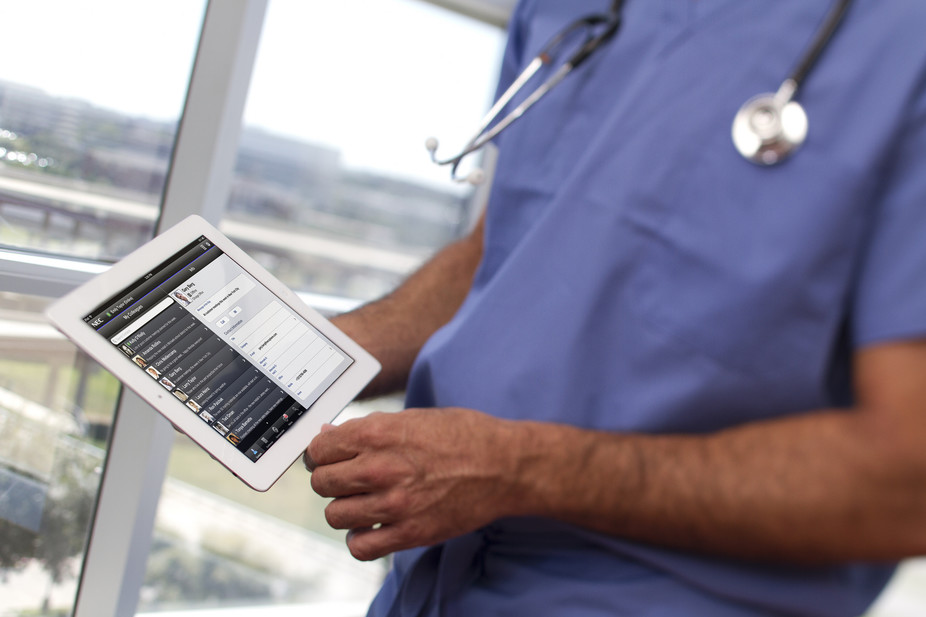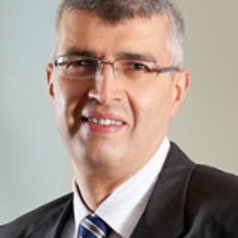Imagine a day where you don’t have to wait weeks to see your GP, followed by a further wait for medical test results and then still more waiting before being seen by a specialist. We know that changing demographic trends, an ageing population and rising rates of chronic illnesses are creating huge demand for health care and social care services. Given the sophistication of 21st-century technology, how could our health care system be changed to better cope with the population it serves?
An efficient healthcare system of the future should empower medical practitioners and patients. It should be able to detect early warning signs that may indicate illness or behaviour that is likely to lead to poor health. For example, reduced physical activity, missed medication or appointments, social isolation, trips and falls at home. Systems could be designed to contact and alert clinicians or carers without further human intervention.
While a meeting with a GP for most people these days is fleeting and lasts only a few minutes, even that short time could be more meaningful. Armed with data gathered from sensors in your home, your wearable devices and mobile phone, the doctor could, with the push of a button, run advanced data analytics designed to make sense of this information about lifestyle, physical activities, social habits, adherence to medication regimes or sleep patterns and their health implications. The decisions they make would then be based on far more data than would otherwise be available – all within the limited time available for consultation. More informed decisions that involve the patient could lead to a better outcome for all.
To get to this position, a digital health system would have to be designed by medical practitioners and engineers working closely together to understand the complex healthcare challenges and their potential engineering solutions. There have been considerable advances in wearable sensors in recent years – and the arrival of the 5G wireless spectrum will provide the capacity for new sensor platforms and devices to capture and share data autonomously between devices and doctors.
For example, researchers from Swansea University are planning trials of smart, 3D-printed bandages that will use 5G wireless data and nano-sized sensors to transmit information about a patient’s wounds, location and activity. Similar innovations could pave the way for better patient monitoring and engagement, especially in remote or deprived areas.
Better use of data
Digital healthcare must be designed to exploit recent advances in computing technology. Smartphones could become advanced tools in the hands of thousands of patients and practitioners. Equipped with the right software, they could provide easily to use, out-of-the-box solutions to major medical challenges – preventing the over-prescription of medication, promoting patient self-care, introducing positive lifestyle changes and warning of the early signs of health problems.
In 2016, 36 devices and medical apps received clearance from the US Food and Drug Administration. These include apps to help people with heart conditions, to help diagnose and treat ADHD in children, apps to help patients manage Type 2 diabetes, and smartphone-based ultrasound scanners and mobile blood glucose monitors.
Researchers from New York University’s Langone Medical Center and SRI International recently developed a new smartphone app that uses machine learning to identify vocal patterns that might signal post-traumatic stress disorder, or even heart disease. Such developments could provide hospital clinicians with new tools to make better diagnoses.
Digital healthcare must make better use of big data analytics and the ability of machine learning algorithms to mine that data and make sense of it, drawing out connections and patterns that are difficult if not impossible to see except at enormous scale. Through analysing the data of many thousands, or hundreds of thousands of individuals, digital healthcare systems will identify emerging social changes and lifestyle trends in their communities. Being forewarned of patterns of change will give health authorities time to respond. New technologies could also provide significant savings in healthcare costs through identifying inefficient and wasteful practices.
Understanding the challenge
Many digital healthcare developments are already underway – for example, in West Yorkshire the work of the Digital Health Enterprise Zone and Digital Catapult Centre Yorkshire. These organisations held a data innovation challenge focusing on type 2 diabetes, in which entrants were encouraged to explore a number of publicly available datasets, leading to the discovery of new ways to use data that offers better insights into the disease. In another example, the Bradford Bright Ideas event held in collaboration with regional NHS Clinical Commissioning Groups, Medipex, DHEZ and Digital Catapult Centre Yorkshire, invited companies to submit bids to address the key healthcare challenges facing the region. The winner from 25 submissions was myCOPD, an app to help patients manage chronic obstructive pulmonary disease, reducing unplanned A&E visits and helping reduce unnecessary referrals.
These are limited examples, but to develop digital technologies for a nationwide healthcare system is no easy task. It will require considerable cooperation between the NHS, software developers, researchers, companies and other public bodies. Substantially different working cultures must be brought together and, most importantly, there are many privacy issues related to the handling of patients’ data that will prove tricky in the absence of internationally agreed privacy rules and governance frameworks. Intellectual property may also be a hurdle through clashes with existing patents or copyrights. Tackling these issues could be a lengthy process, but the rewards will be worth it.
 Rami Qahwaji is Professor of Visual Computing at the University of Bradford, the Academic Director of the Digital Catapult Centre Yorkshire and member of the Steering Committee for the Digital Health Enterprize Zone (Academic)
Rami Qahwaji is Professor of Visual Computing at the University of Bradford, the Academic Director of the Digital Catapult Centre Yorkshire and member of the Steering Committee for the Digital Health Enterprize Zone (Academic)



 GLP-1 Weight Loss Pills Set to Reshape Food and Fast-Food Industry in 2025
GLP-1 Weight Loss Pills Set to Reshape Food and Fast-Food Industry in 2025  China to Add Eli Lilly’s Mounjaro to National Health Insurance in 2025
China to Add Eli Lilly’s Mounjaro to National Health Insurance in 2025  SpaceX Prioritizes Moon Mission Before Mars as Starship Development Accelerates
SpaceX Prioritizes Moon Mission Before Mars as Starship Development Accelerates  Nvidia Confirms Major OpenAI Investment Amid AI Funding Race
Nvidia Confirms Major OpenAI Investment Amid AI Funding Race  SpaceX Updates Starlink Privacy Policy to Allow AI Training as xAI Merger Talks and IPO Loom
SpaceX Updates Starlink Privacy Policy to Allow AI Training as xAI Merger Talks and IPO Loom  SpaceX Pushes for Early Stock Index Inclusion Ahead of Potential Record-Breaking IPO
SpaceX Pushes for Early Stock Index Inclusion Ahead of Potential Record-Breaking IPO  Viking Therapeutics Sees Growing Strategic Interest in $150 Billion Weight-Loss Drug Market
Viking Therapeutics Sees Growing Strategic Interest in $150 Billion Weight-Loss Drug Market  Nvidia Nears $20 Billion OpenAI Investment as AI Funding Race Intensifies
Nvidia Nears $20 Billion OpenAI Investment as AI Funding Race Intensifies  AstraZeneca’s LATIFY Phase III Trial of Ceralasertib Misses Primary Endpoint in Lung Cancer Study
AstraZeneca’s LATIFY Phase III Trial of Ceralasertib Misses Primary Endpoint in Lung Cancer Study  Nvidia, ByteDance, and the U.S.-China AI Chip Standoff Over H200 Exports
Nvidia, ByteDance, and the U.S.-China AI Chip Standoff Over H200 Exports  Sanofi’s Efdoralprin Alfa Gains EMA Orphan Status for Rare Lung Disease
Sanofi’s Efdoralprin Alfa Gains EMA Orphan Status for Rare Lung Disease 
































